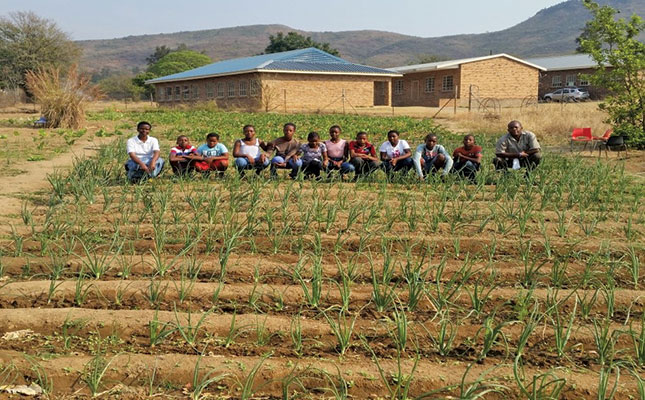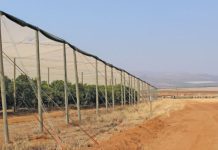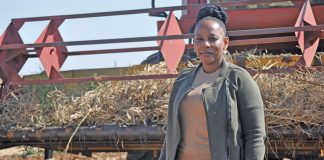
Photo: Supplied
After years of being an extension officer adviser and training land reform farmers, smallholders and subsistence farmers for the Department of Agriculture and Rural Development in the deep rural Mopani district of Limpopo, John Mthembi sat down and rethought his approach to helping his community.
The areas he had serviced for decades suffered under extreme poverty and high unemployment and were also affected by low rainfall and subsequent food insecurity.
In 2015, while a ward officer, he decided to redirect his extension services to where it mattered most – backyard producers – and thus help establish long-term food security.
As the province had made food security a priority and begun supporting schools with fertiliser and seeds for this purpose, he decided that he too would become involved in schools and raise awareness of food gardens, thus helping young people become interested in agriculture. He believed this step would have a long-term impact.
“Backyard producers, smallholders and subsistence farmers require 110% of our attention as advisers. I also consulted with school principals and decided that schools, clinics and traditional authorities were strategic places to take our services into public spaces,” Mthembi recalls.
He admits that, initially, his timing was bad, as he began focusing on school gardens during the 2015 drought.
“I turned my attention to schools with water provision and introduced school gardening. Now there are 17 schools that participate in food garden programmes,” he says.
New vegetable grower
A major challenge Mthembi faces is that many rural children have a negative attitude towards food gardening, as working in school gardens is often meted out as punishment to those who behave badly.
A very recent invention, however, has changed school gardening on many levels and fits right in with Mthembi’s goals.
The Gardenizly is a plastic vegetable tower, much like a pyramid, with holes in its sides for seedlings. It uses only 10ℓ of water a week, has capacity for 56 seedlings, and takes up very little space.
Using the contraption also means that vegetables are not grown in the traditional manner, which removes the stereotype of growing food as ‘uncool’. This gets pupils interested, Mthembi says.
Since some of the schools where Mthembi is involved have started using the Gardenizly, he has received positive feedback from teachers about pupil participation.
Schools are seeing it as so valuable that they have begun buying their own seedlings for the garden projects and are not relying on government to supply them. Best of all, these projects are contributing to school feeding schemes.
Schools that do not have a Gardenizly have also pulled up their sleeves and now grow successful vegetable gardens with a little help from Mthembi and his colleagues, using good production principles.
Each school has a coordinating teacher to assist with this process.
“We teach efficient irrigation methods, as well as soil fertility management and water-saving methods, to both schools and smallholders,” says Mthembi.
“In my area, for example, not many people will think of using kraal manure to fertilise crops as it isn’t the traditional method. “But they should use the manure instead of saying they don’t have money to buy fertiliser.
“My approach is to make food gardening as interesting as possible. At the back of my mind, I want students to have the idea that they must want to learn and try it.”
Poverty
“Poverty is so prevalent in the areas where I work that we try to encourage people to produce their own food in their backyards with the available scarce resources so they can become more food-secure. They don’t use modern technology because they can’t afford it.
“While we acknowledge the presence of poverty, we have the responsibility to encourage people to produce their own food rather than fold their arms and ask for help,” he says.
The next step after food security is some form of commercialisation, and with advice from extension officers, some backyard growers and schools sell produce when they have a surplus.
A group of women taught by Mthembi and his colleagues, for example, are now supplying beetroot to markets.
Mthembi believes food gardens can be run throughout the country, and particularly in rural areas where unemployment and poverty abound.
The future
Mthembi says his plans include spreading the idea of food security among more pupils and raising backyard gardening awareness through establishing more gardens at strategic places where people will be influenced and go on to imitate such practices at their homes.
“Maybe one can gradually and diplomatically influence decision-making with regard to funding for these projects,” he says.
Email John Mthembi at [email protected].











